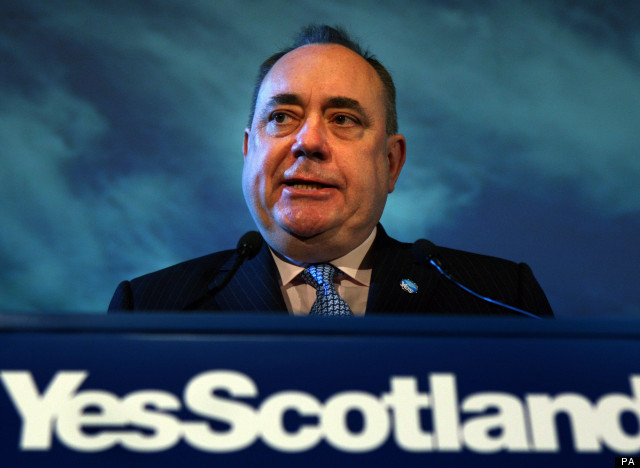When China invests in infrastructure throughout the world, it’s partly to
get rid of its dollars. But then they pass into the hands of large companies in
the infrastructure field, which in turn accumulate dollar reserves. If their
treasury is run in dollars, the fall which we anticipate above will cause them
to lose a great deal of money. Domestic SMEs are a priori much less sensitive to
this risk and accordingly we favour them in terms of investment strategy. We
reiterate our recommendation for European businesses trading abroad to invoice
their services in Euros in order to free themselves from exchange rate risk.
It’s simpler and especially safer than to rely on financial products which make
it possible to cover this risk: who will pay out on these options or other
derivatives in the event of a world financial shock?
Germany, France and nine other EU countries approved tax on financial
transactions
The Times reported that EU finance ministers gave their blessing to the
scheme, which will apply to anyone in the 11 countries who makes a bond or share
trade or bets on the market using derivatives...
Moscow Stock Exchange announces domestic IPO
Russia’s leading stock exchange will hold its initial public offering
(IPO) on its own trading platform. The shares will only trade in Moscow. The
size and time of the flotation hasn’t been announced...
A recommendation to Euro-BRICS leaders: Organize a mini Euro-BRICS Summit,
ahead of the St Petersburg G20, in order to develop common strategic positions
to exit the crisis and bring global governance into the XXI° century
In 2013, the world realizes that the U.S. debt that weighs so heavily on
the global economy, has no solution: its astronomical size and the extreme
weakness of economic fundamentals in the United States leave nothing more than
to predict the collapse of the international currency as the inevitable
consequence of and solution to the U.S. debt crisis. Thus the global crisis is
about to experience a new dramatic development. The question is: Is the world
prepared to bear such a shock?
Goldman Overcomes Its Latest Headache
It was an American success story gone horribly wrong. A married couple
started a software business in their Massachusetts home and eventually sold it
to a Belgian company for $580 million...
Yen Meddling—What Has Japan Started?
Japan's new government certainly isn't mincing its words about wanting a
weaker yen. Deputy Economy Minister Yasutoshi Nishimura said on Thursday the
yen's fall was not over and a move to 100 per dollar would not be a concern – a
comment that sent the yen tumbling 2 percent overnight with the currency a 2-1/2
year low at about 90.65 to the greenback on Friday...
U.K. Economy Shrinks More Than Forecast
Britain’s economy shrank more than forecast in the fourth quarter as the
boost from the Olympic Games unwound and oil and gas output plunged, leaving the
country on the brink of an unprecedented triple-dip recession...
L'Afrique du Sud invite l'UA à participer au sommet des BRICS
Le gouvernement sud- africain a déclaré jeudi avoir, pour la première
fois, invité l'Union africaine (UA) et les économies régionales africaines au
5ème sommet des BRICS afin de promouvoir l'intégration régionale. ..
ECB Says Banks to Make 137 Billion-Euro Loan Repayment Next Week
The European Central Bank said 278 banks will hand back 137.2 billion
euros ($184.4 billion) of its three-year loans next week at the first
opportunity for early repayment. That compares with the median forecast of 84
billion euros in a Bloomberg News survey of economists...
Why were German soldiers 'attacked' in Turkey?
The recent attack on German soldiers by a group of Turkish nationalists in
Iskenderun reveals the distrust some Turks feel toward the West, NATO and the
US. It seems likely that more protests will follow...
Monti attacks 'short-termism' in EU politics
Italy's outgoing Prime Minister Mario Monti on Wednesday (23 January)
criticised fellow EU leaders for the way they dealt with the euro crisis and
said corporations are blocking reforms in order to promote "vested interests" in
Europe...
Bundesbank chief warns that central banks are being pushed into currency
war
Loading central banks with more tasks and pressing them to pursue more
aggressive monetary policies could risk a round of competitive devaluations,
European Central Bank policymaker Jens Weidmann said on Monday, citing pressure
on the Bank of Japan...
Nos très “chers” alliés…
L’aide logistique de certains alliés est mise en avant. Mais elle n’est
pas gratuite. A l’envoi de C17 britanniques ou américains devrait succéder la
facture ensuite, selon les informations reçues par B2. Les Américains ont ainsi
prévenu les Français, l’heure de vol sera facturée...
Alex Salmond says EU speech ‘completely changes’ independence vote
“It is now clear the persistent undercurrent of Tory Euroscepticism poses
the biggest threat to Scotland’s position in the EU and has now helped to hole
below the waterline the baseless scaremongering of Alistair Darling and the rest
of the No campaign.”...
Les raisons de la surprise Yaïr Lapid aux législatives israéliennes
eliennes_b5152736.html?&start=20
Le score de Yaïr Lapid est la grosse surprise de ces élections. Il
remporte 19 sièges, alors que les derniers sondages le créditaient de 12 sièges.
Il a siphonné les voix du parti centriste Kadima ("En avant") de Shaul Mofaz et
du parti Hatnoua ("Le Mouvement") de Tzipi Livni, ancienne de Kadima...
Otro supremazo: la tercera sala de la Corte ordenó a la SBIF revelar las
fiscalizaciones que realiza a la banca y dispuso que la SVS publique los nombres
de funcionarios que tienen acciones de empresas reguladas...

































































